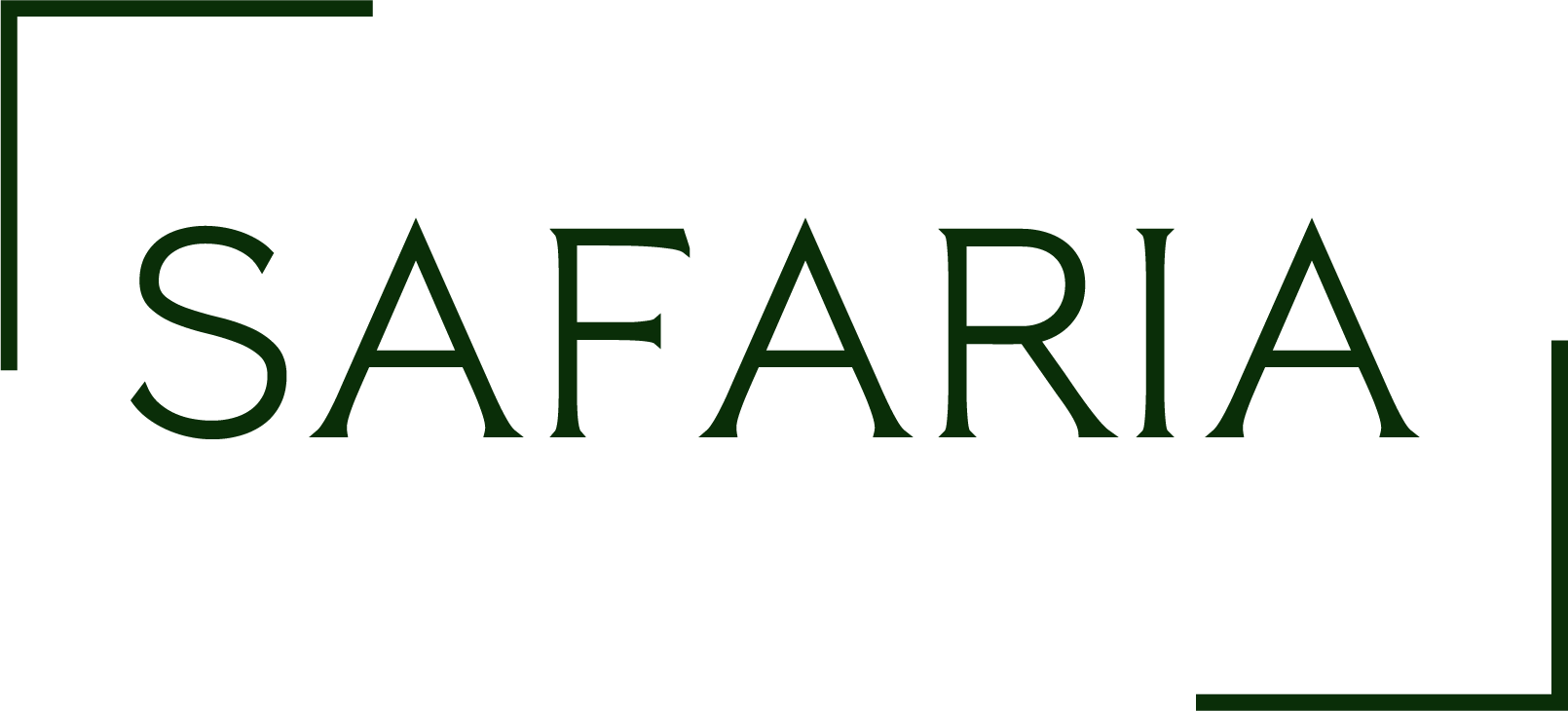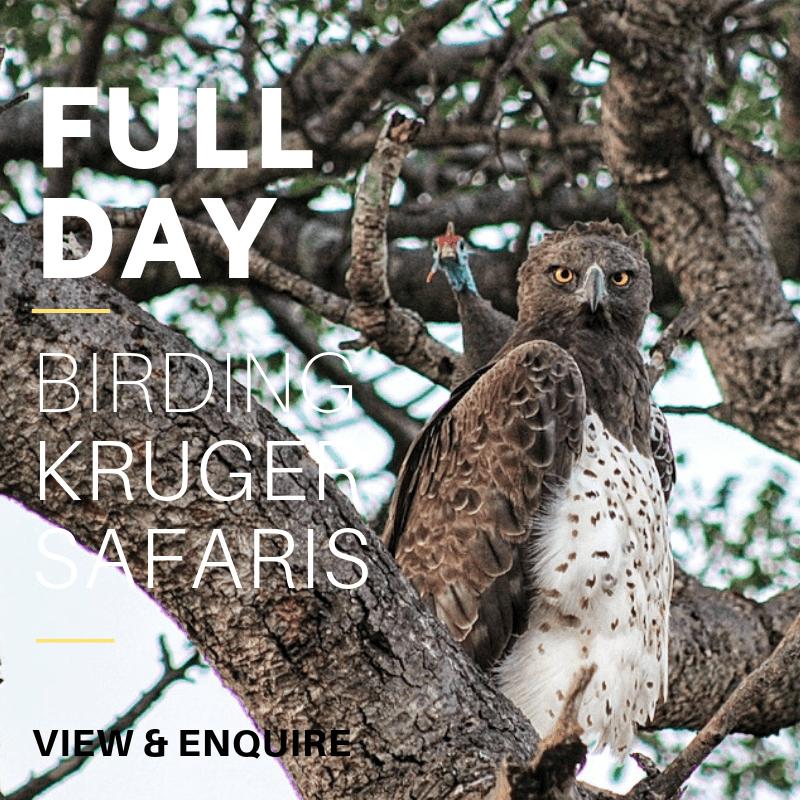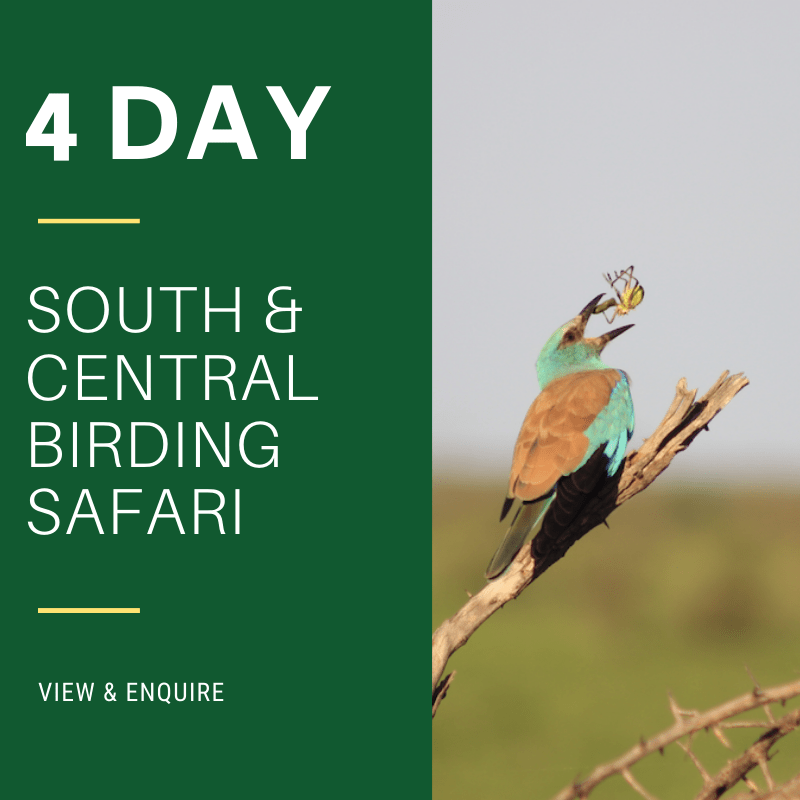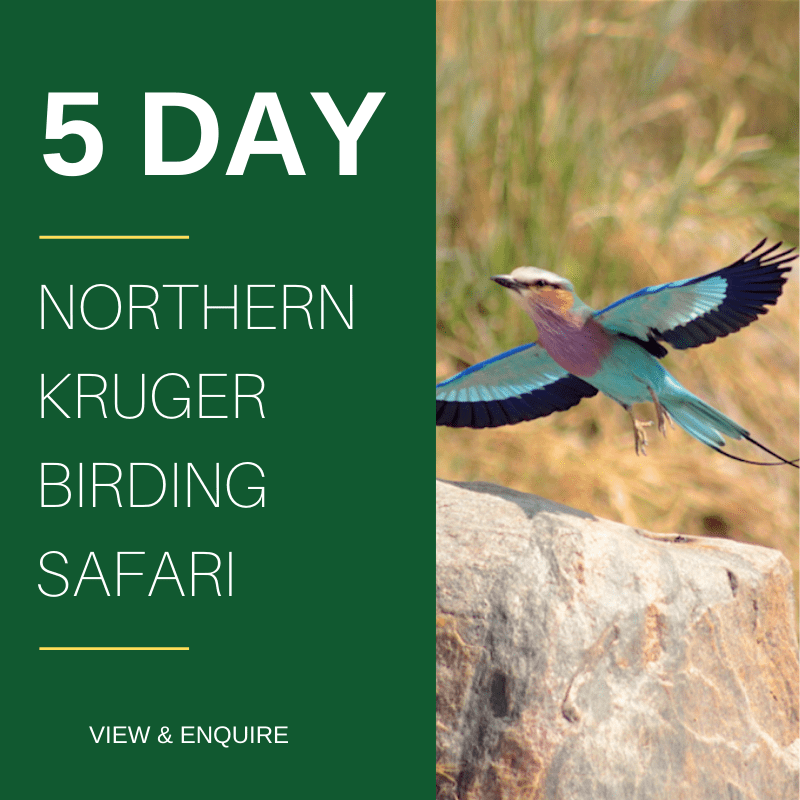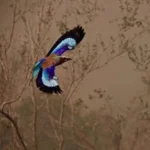Privately Guided Kruger Birding Safaris
Meet Andrew Wagner: A Premier Birding Guide in Kruger National Park
Embark on an unparalleled avian adventure with Andrew Wagner, a specialist birding guide based in the breathtaking Kruger National Park. As a member of the esteemed Birding Africa guiding team, Andrew brings a wealth of expertise, passion and experience to the forefront of every Kruger Birding expedition. His commitment to providing a remarkable birding experience extends beyond his association with Birding Africa, as Andrew also guides other discerning clients from companies such as Wings and curates his own captivating birding safaris in the expansive and diverse Greater Kruger region.
Andrew's intimate knowledge of Kruger's avian world, coupled with his keen observational skills, transforms each outing into a captivating exploration of the rich birdlife that calls Kruger home. Whether you are a seasoned birder or a novice enthusiast, Andrew's engaging and informative approach ensures that every birder or safari goer gains a deeper understanding and appreciation for the remarkable bird species found in this iconic South African wilderness.
Join Guide Andrew Wagner in unraveling the secrets of Kruger's avifauna as he seamlessly combines his expertise with a genuine love for this exceptional bushveld savanna. With a focus on creating unforgettable birding experiences, Andrew's guided safaris promise not only rare sightings and unique encounters but also an immersive journey into the heart and soul of Krugers ancient cultures, history, heritage and bush wisdoms.
Safaria and Guide Andrew are recognised and RECOMMENDED BY BIRDLIFE SOUTH AFRICA
Follow Andrew on eBird - here
See Andrews profile on Oniverse
The Kruger National Park is one of the largest and best-known conservation areas in the world. Famous for its wide diversity of wildlife and in particular the Big 5, it also has a staggering diversity of Bird life. With just over 550 species having been documented across its length and breadth, the Kruger National Park represents more than half of all the bird species found throughout Southern Africa.
The Kruger National Park offers its visitors a birding experience that in the opinion of many wildlife enthusiast’s is unsurpassed and amongst the finest destinations to Bird in the world. The reasons being the sheer size of the Park with 20,000 square kilometers that has great infrastructure with both tar and dirt roads connecting a network or Camps, lookouts and hides. The infrastructure offers guests the opportunity to explore far and wide with an opportunity to find something new every day.
+500 species
Big 5 Game
Open Safari Vehicle
Private Guided Safari
Stay inside Kruger
Personalised Itineraries
2 to 12 Guests
Year Round
Full Day Southern Kruger Birding Safari
For birder with limited time but looking to maximise on savanna species, the southern region offers wonderful diversity of terrain which means great birding and an opportunity to find and capture more than a 100 birds in a day during the summer months.
Duration: 1 Full Day
Price From: R1,650 per person
4 Day Central Kruger Park Birding Safari
The 4 Day Birding Safari is a great way to explore the South and Central regions of the Park and offers guests wonderful diversity across 4 major eco-zones. On this Safari we cover broad-leafed woodland, thorn thicket, grasslands and water courses.
Duration: 3 Nights & 4 Days
Price From: R 24,214 per person
5 Day Northern Kruger Birding Safari
The 5 Day Bird through Kruger is the ultimate Kruger birding experience. The far northern stretches are part of the lowest reaches of the equatorial belt and as such attract some incredible birdlife. This trip is a true birders delight and wonderful adventure.
Duration: 4 Nights & 5 Days
Price From: R 30,877pp

An introduction to Birding in the Kruger National Park
The Kruger National Park is one of the largest and best-known conservation areas in the world. Famous for its wide diversity of wildlife and in particular the Big 5, it also has a staggering diversity of Bird life. With over 500 species having been documented across its length and breadth, the Kruger National Park represents more than half of all the bird species found throughout Southern Africa. (*As per the latest Roberts Bird Guide of Kruger National Park the number is 556 Avifauna species in the Greater Kruger National Park Region)
The Kruger National Park offers its visitors a birding experience that in the opinion of many wildlife enthusiast’s is unsurpassed and amongst the finest destinations to Bird in the world. The reasons being the sheer size of the Park with 20,000 square kilometers that has great infrastructure with both tar and dirt roads connecting a network or Camps, lookouts and hides. The infrastructure offers guests the opportunity to explore far and wide with an opportunity to find something new every day.
One of the many birding attractions is the diversity of landscape that is constantly changing. With 9 different eco-zones found in within Kruger’s greater savanna system, these varied habitats attract a variety avian fauna. These varied environments include undulating savanna catena, granite inselberg’s, rocky strewn hill tops, large perianal rivers, annual drainage lines, dams, pans vast grasslands, thorn thicket and deep cliff lined gorges. All of these landscapes are adorned with a variety of flora which is made up of over 2,400 species. The variation of these together with a mild winter and hot, wet summers, create the ideal conditions for a perfect birding destination. Summer is the peak season attracting migrants from Africa, Europe and Asia. Winter brings all the forest species down from the northern most tip of the Drakensberg escarpment. During January and February there are often floods and during this period all the dams, lakes and pans fill up and attract a variety of unusual tropical water-birds .
The Kruger National Parks Avifauna
Our preferred reference guides are that of SASOL’s Birds of Kruger National Park as well as the more detailed Roberts Birds of Southern Africa. By their assessments there are about 313 Birds found in the Park year round with 241 regular migrant visitors which is made up as follows : Total Species - 556 | Resident - 313 | Migrants - 241 |
If we breakdown the Migrant species its looks as follows : Paleartic - 74 | Intra-Africa - 46 | Altitudinal - 17 | Passage - 7 | Drought - 11 | Very Wet - 23 | Cyclone - 5 |
With 147 mammals that roll up into the Big 5 and 3 big cat species, the Park attracts over 1,8 million guests every year to come and see these animals. For the Birder there is a feats of predatory birds with sixty-seven raptor species that have been documented in the Park made up of 10 breeding pair of Eagle, 5 resident vultures, Bat-Hawk, Goshawk, Sparrow-hawk, Cuckoo-hawk as well as Harriers, Falcons, Kestrels and 10 different Owl species.
Many of the Vulture and Eagle species, which use to be wide spread across South Africa are now only found in the Park as a result of destructive land practice and misuse. As a result of this 5 of the Parks Vultures are listed “Critically Endangered or Endangered” with the Martial Eagle listed as “Vulnerable and the Bateleur as “Threatened”.
Waterbirds are another wonderful attraction in the Kruger. The Park doesn’t offer mass gatherings of tens of thousands of a species in a single wetland or lake but what it lacks in numbers it makes up for in diversity. The Park has a wonderful assortment or river dwelling and nesting species that are complimented by tropical species in the years of high rainfall. These include Bitterns, Crakes, Coucal’s and Openbills. More than 100 hundred Waterbird species have been documented in the Park of which half of these which are mostly river dwelling are all resident species in the Park and can be seen year round. These include Herons, Storks, Crakes, Ducks, Ibis, Hamerkop.
A large portion of the Kruger Park’s smaller species, (passerines and near-passerine) are all-insectivorous. Many of these are wonderfully conspicuous and stick out vividly. These include Rollers, Kingfishers, Bee-eaters and Shrikes. Apart from these colourful characters there are also a group of shy and perhaps drab but certainly beautiful and full of song. These include the Robin Chats, Scrub-Robins, Thrushes, Warblers and Drongo’s. The greatest portion of migratory species is found within the ranks of the insectivores as they move with the seasons chasing their food.
The summer months from October to March see tens of thousands of migratory species flocking to Kruger’s abundance. The diversity of species is particularly noticeable over this period and it makes for the most productive period on Kruger’s birding calendar. Many of these species come from the central African tropics, return at night to their previous years nests to bread. This fairly undocumented routine is an absolute wonder and one of our personal favourites is the arrival of the Monotonous Lark. Other migrants flee their cold climates for the off-season and take refuge on the Park for some warm sunshine and feeding. These include many Swallow species as well as European Bee-eaters and Red-backed Shrike.
The species that moves on and out of the Park in the greatest numbers is of course the Red-billed Quelea. A species that needs no introduction, their numbers baffle the mind with a rough estimate of over 30 million birds swathing through the park in the later period of summer when the grasses are at the peak and in full seed. These birds have the ability to rapidly reproduce within a month/30 day cycle and occupy the thorn-thickets that run up the centre of the Park, north of Skukuza all the way up to the Olifant’s River. These colonies cannot only be seen but also heard from a distance and of course attract a wide variety of raptors. Currently under research is the relationship between these breading colonies and the Wahlberg’s, Lesser-Spotted and Tawny Eagles.
Birding in the Kruger National Park with Safaria
The majority of the Birding done in the Kruger National Park is done by closed vehicle. Whilst this offers the perks of being a mobile hide equipped with window-sills to rest ones camera as well as air-conditioning, this is somewhat limiting in that the visibility is obscured and one is forced to have the windows down with limited sound.
For this reason we Bird from our own Full Open Safari Vehicles. Apart from a solid, high and flat roof for shade, our vehicles are completely open and offer uninterrupted views and sound. These vehicles can accommodate 7 comfortably, each with and window seat and because of the high flat roof we can be out all day ( 12 hours) birding vast ranges between camps.
We offer Kruger National Park Birding Safaris and Tours for the new-Birder as well as more advanced Birder looking to add several key species.
About your Guide :
Greetings! I am Andrew Wagner, a passionate Birding Guide based in the awe-inspiring Kruger National Park. With a profound love for avian life and a deep appreciation for the natural world, I've dedicated myself to providing immersive and educational birding experiences for enthusiasts, nature lovers, and curious minds alike in the Kruger. With over a decade of experience, I annually conduct Birding Safaris in Kruger for clients such as Birding Africa, Wings and Tembele .
Having travelled the length and breadth of the park in search of birds i have developed a deep understanding of the diverse bird species that call the Kruger National Park home and have surpassed 430 recorded species. My Birding Safaris are not only about bird identification but also about fostering a deeper understanding of avian behavior, ecology, and the intricate relationships within their habitats. Through engaging narratives and hands-on experiences, I aim to in-still a sense of wonder and appreciation for the avifauna of the Kruger National Park.
For the back story i spent 17 years working in the Corporate space for companies like Daimler, Mercedes-Benz, Barloworld and Avis in the fields of Finance, Sales & Marketing as well as Brand and Organisational Strategy. I decided that it was time to pursue my own goal and dreams and started Safaria offering private guided wildlife, birding and photographic safaris in the Greater Kruger National Park region....and i never looked back.
SEND US A PERSONAL REQUEST AND WE"LL CREATE THE ITINERARY FOR YOU
What our guest's say :
" Andrew is an exceptional birding guide. We spent five days enjoying the birds that we saw. His ability to call in birds is very impressive. But his overall knowledge of Kruger’s flora and fauna made the tour special. He is a very good tour guide. I highly recommend him to anyone want to experience Kruger National Park"
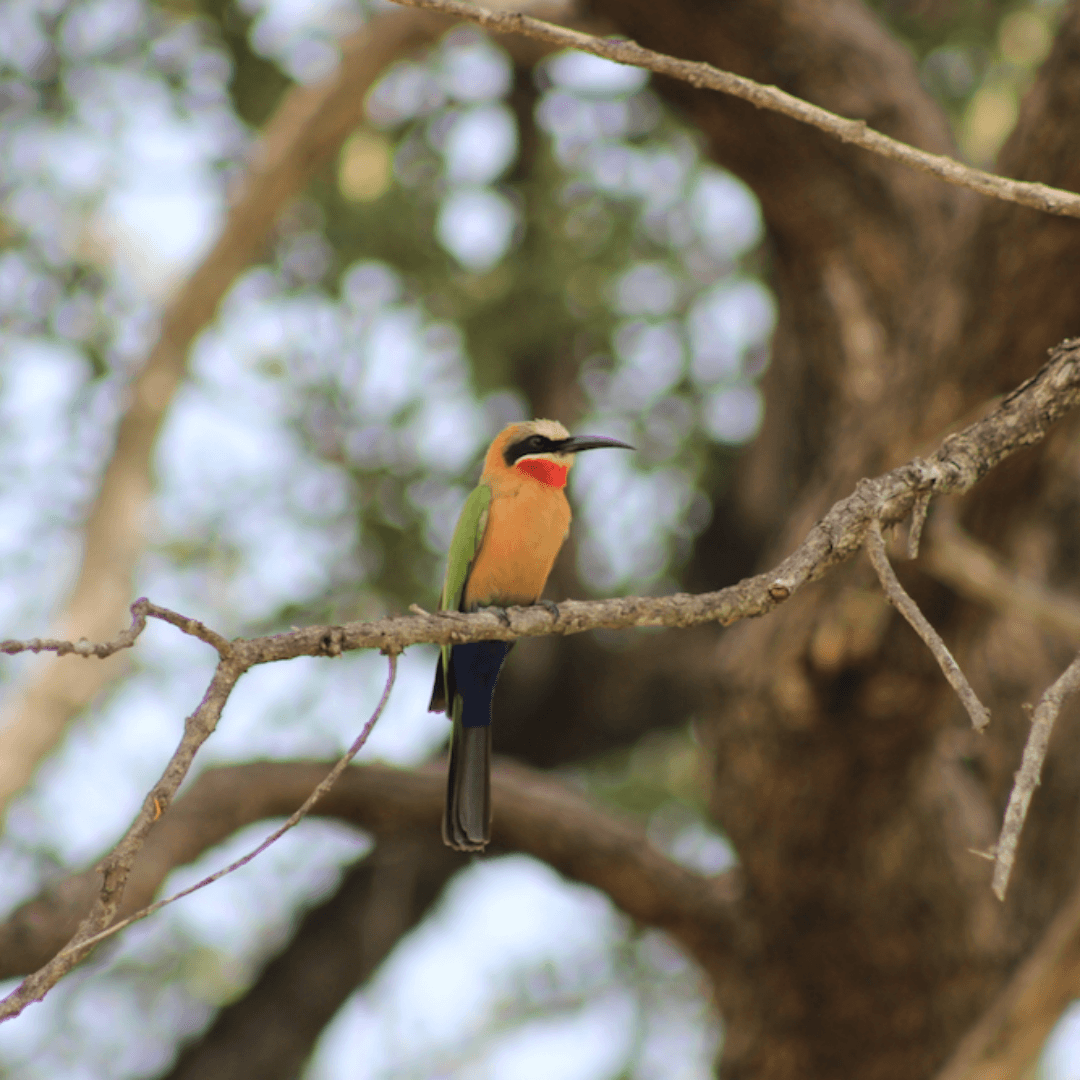
White fronted Bee-eater
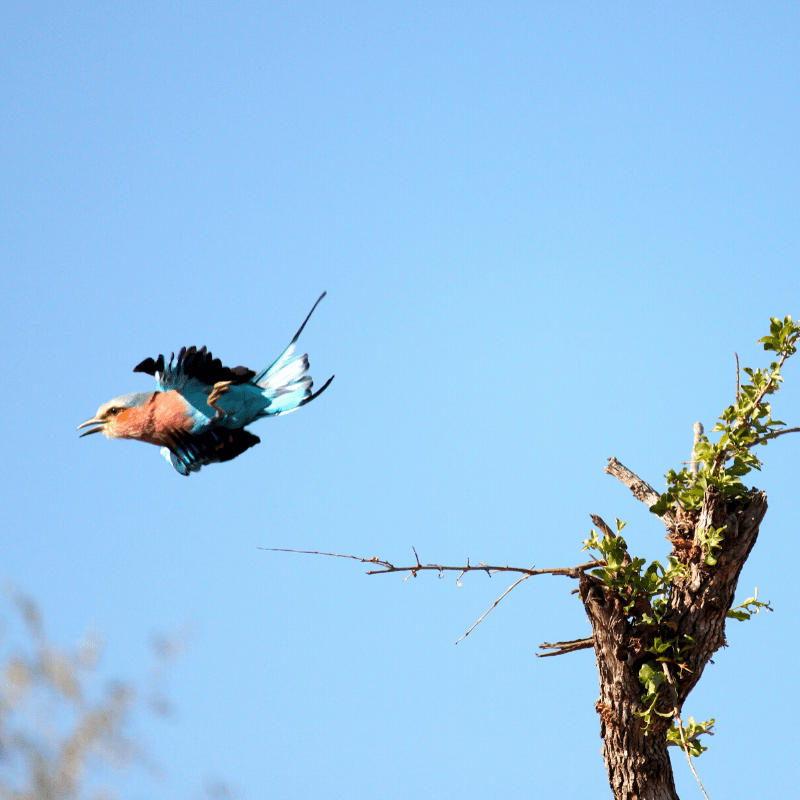
Lilac-breasted Roller
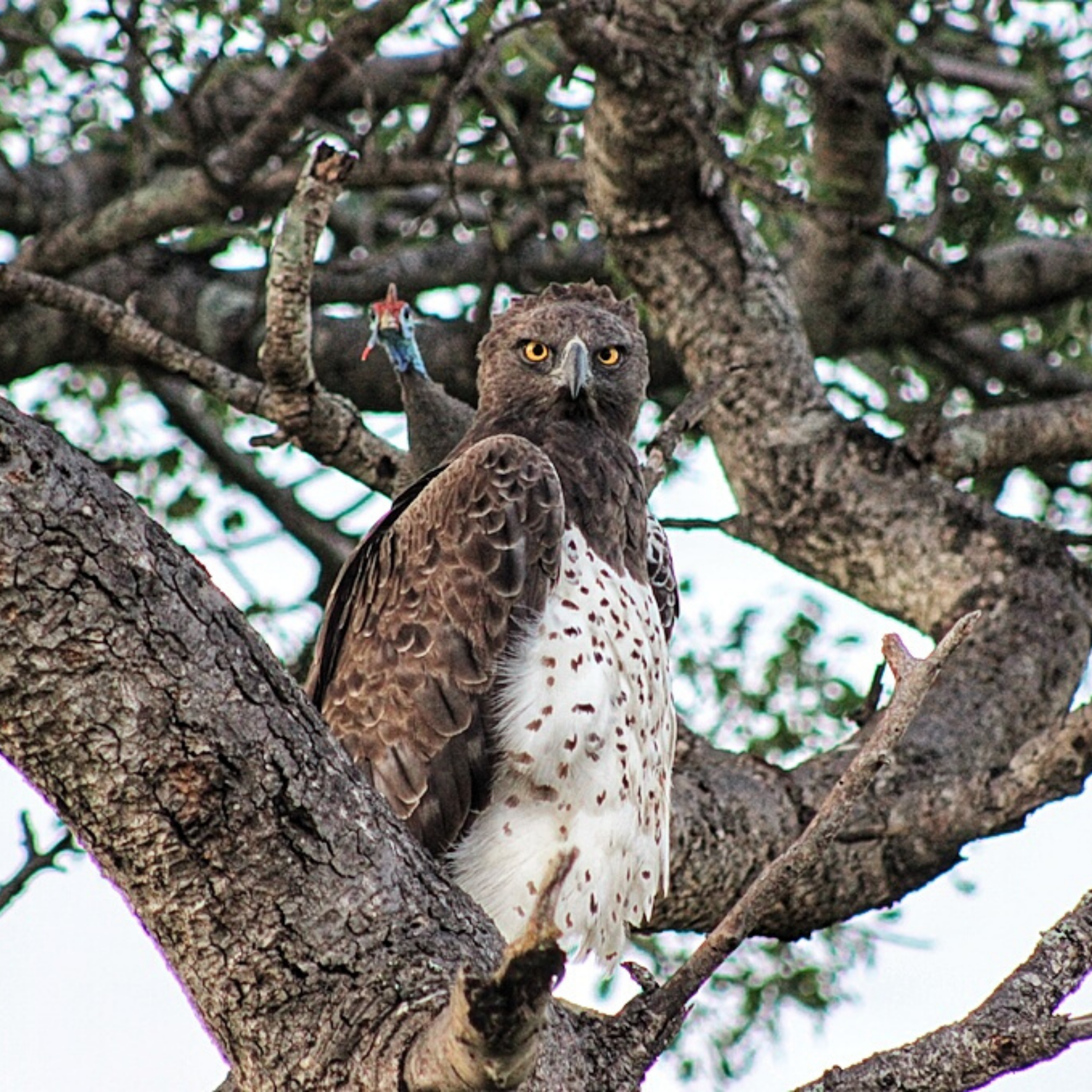
Martial Eagle
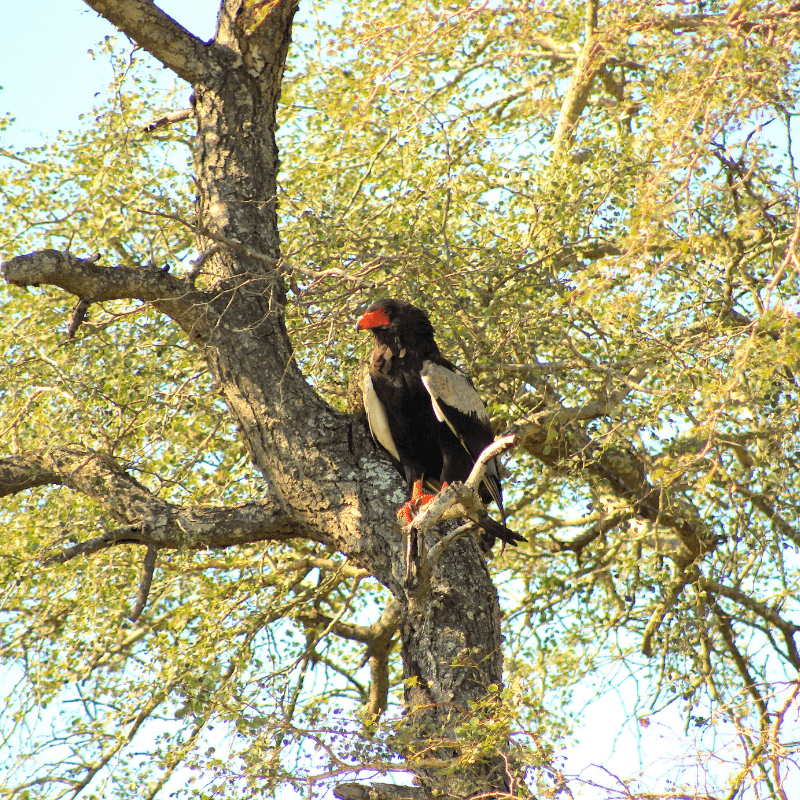
Bateleur Eagle
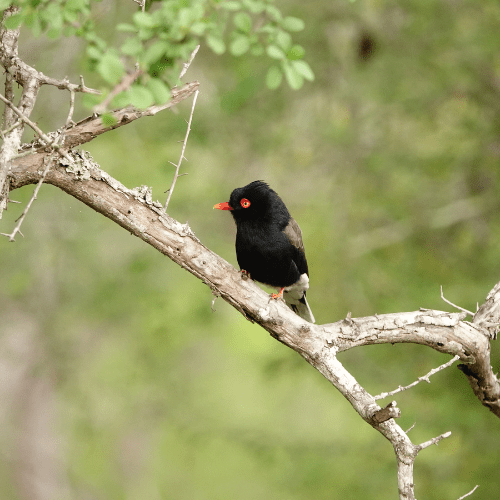
Retz's Helmet-Shrike
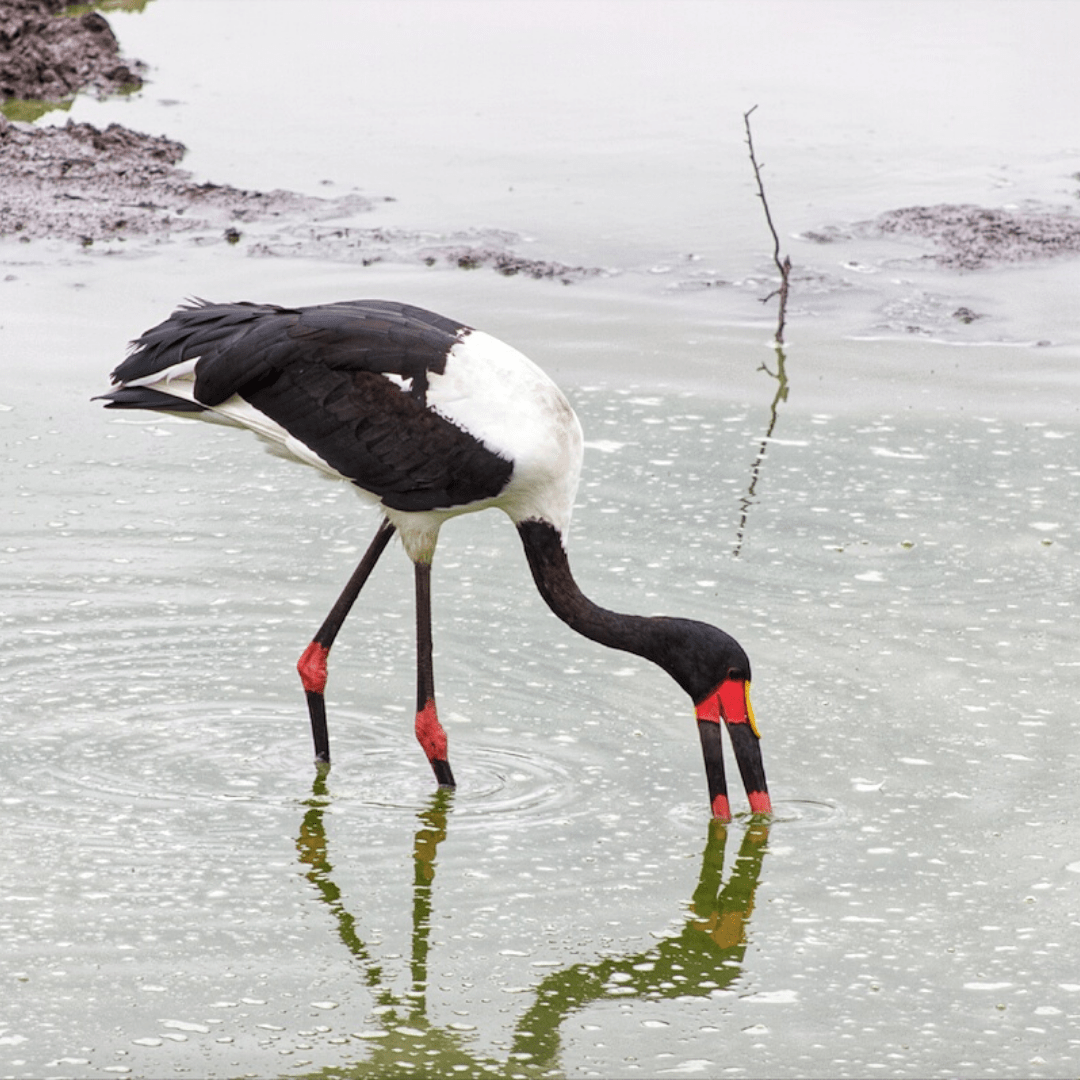
Saddle-billed Stork
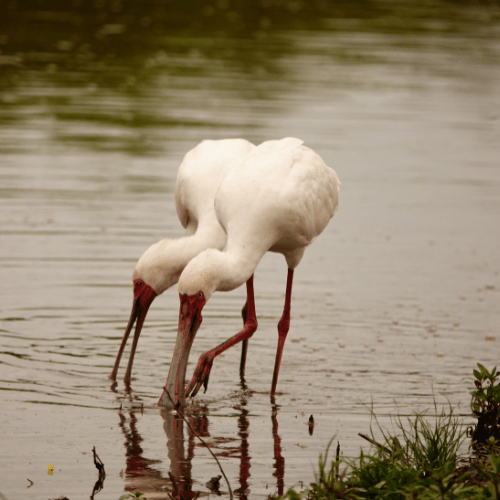
African Spoonbill
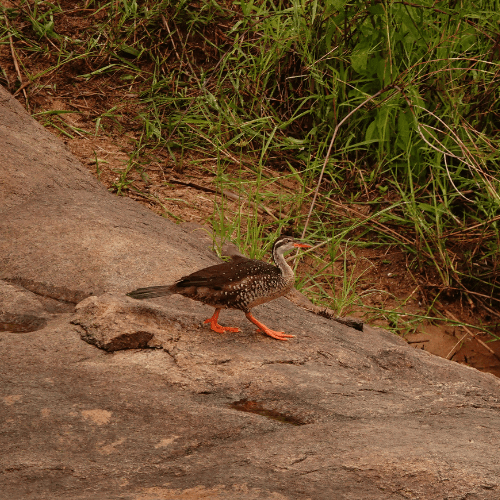
African Finfoot
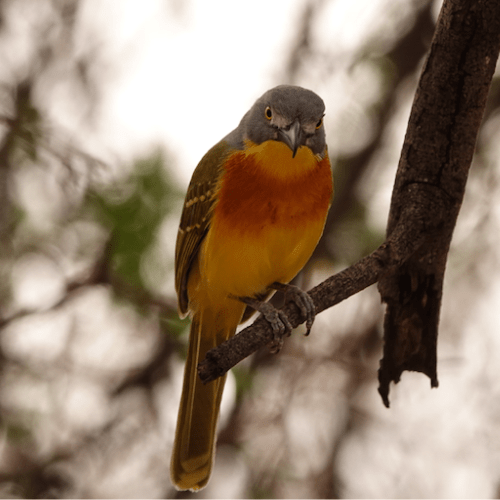
Grey-headed Bushshrike
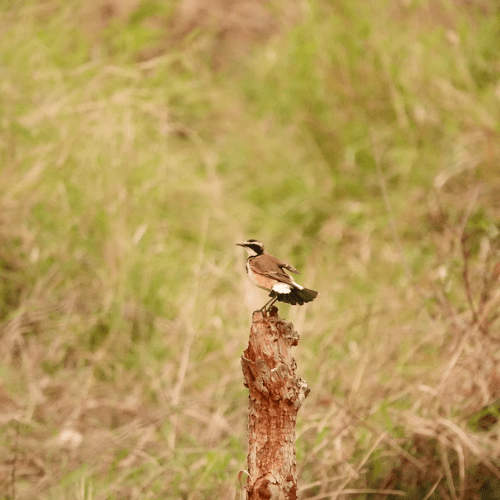
Capped Wheatear
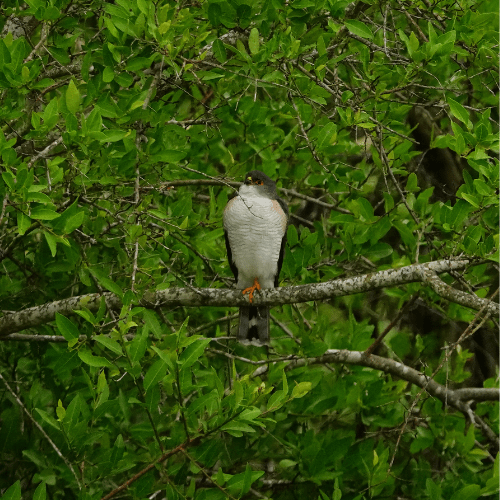
Little Sparrow-Hawk
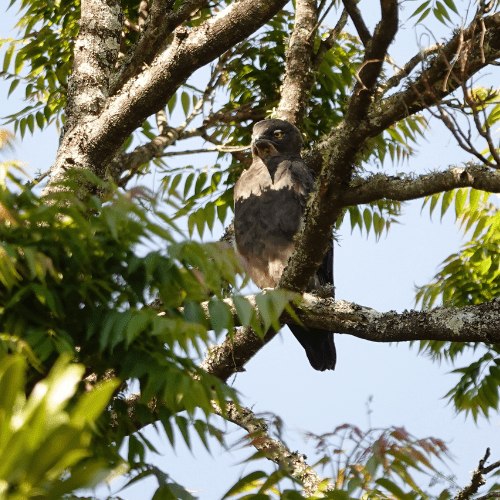
Bat Hawk
